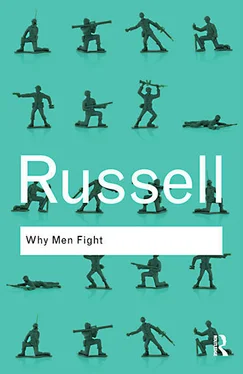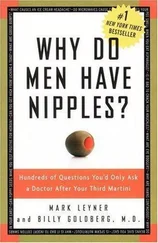Some of the things which education achieves at present must continue to be achieved by education in any civilized country. All children must continue to be taught how to read and write, and some must continue to acquire the knowledge needed for such professions as medicine or law or engineering. The higher education required for the sciences and the arts is necessary for those to whom it is suited. Except in history and religion and kindred matters, the actual instruction is only inadequate, not positively harmful. The instruction might be given in a more liberal spirit, with more attempt to show its ultimate uses; and of course much of it is traditional and dead. But in the main it is necessary, and would have to form a part of any educational system.
It is in history and religion and other controversial subjects that the actual instruction is positively harmful. These subjects touch the interests by which schools are maintained; and the interests maintain the schools in order that certain views on these subjects may be instilled. History, in every country, is so taught as to magnify that country: children learn to believe that their own country has always been in the right and almost always victorious, that it has produced almost all the great men, and that it is in all respects superior to all other countries. Since these beliefs are flattering, they are easily absorbed, and hardly ever dislodged from instinct by later knowledge.
To take a simple and almost trivial example: the facts about the battle of Waterloo are known in great detail and with minute accuracy; but the facts as taught in elementary schools will be widely different in England, France, and Germany. The ordinary English boy imagines that the Prussians played hardly any part; the ordinary German boy imagines that Wellington was practically defeated when the day was retrieved by Blücher’s gallantry. If the facts were taught accurately in both countries, national pride would not be fostered to the same extent, neither nation would feel so certain of victory in the event of war, and the willingness to fight would be diminished. It is this result which has to be prevented. Every State wishes to promote national pride, and is conscious that this cannot be done by unbiased history. The defenceless children are taught by distortions and suppressions and suggestions. The false ideas as to the history of the world which are taught in the various countries are of a kind which encourages strife and serves to keep alive a bigoted nationalism. If good relations between States were desired, one of the first steps ought to be to submit all teaching of history to an international commission, which should produce neutral textbooks free from the patriotic bias which is now demanded everywhere. [20] 2 We have reached lately a depth even lower than the distortion of the minds of children. Children are to be organized so as to become the innocent tools for hate and cruelty to be implanted through parental affection. For the way of doing this see the Teacher’s World , September 5, 1917. On a given day every boy and girl in school is to write a letter to a friend on active service. “Their letters must give their hearers a hearty greeting; a real firm hand-shake. The letters must not just say, ‘How do you do?’ but ‘You are winning. We are proud of you. We’ll see it through with you. Everybody is helping,’ and so forth.” “Above all, the letters must be natural. … The older children should write their letters entirely by themselves. The younger ones should have as little help as possible. Very young ones might just send a cheery line or two from the teacher’s copy on the blackboard.”
Exactly the same thing applies to religion. Elementary schools are practically always in the hands either of some religious body or of a State which has a certain attitude towards religion. A religious body exists through the fact that its members all have certain definite beliefs on subjects as to which the truth is not ascertainable. Schools conducted by religious bodies have to prevent the young, who are often inquiring by nature, from discovering that these definite beliefs are opposed by others which are no more unreasonable, and that many of the men best qualified to judge think that there is no good evidence in favour of any definite belief. When the State is militantly secular, as in France, State schools become as dogmatic as those that are in the hands of the Churches (I understand that the word “God” must not be mentioned in a French elementary school). The result in all these cases is the same: free inquiry is checked, and on the most important matter in the world the child is met with dogma or with stony silence.
It is not only in elementary education that these evils exist. In more advanced education they take subtler forms, and there is more attempt to conceal them, but they are still present. Eton and Oxford set a certain stamp upon a man’s mind, just as a Jesuit College does. It can hardly be said that Eton and Oxford have a conscious purpose, but they have a purpose which is none the less strong and effective for not being formulated. In almost all who have been through them they produce a worship of “Good form,” which is as destructive to life and thought as the mediæval Church. “Good form” is quite compatible with a superficial open-mindedness, a readiness to hear all sides, and a certain urbanity towards opponents. But it is not compatible with fundamental open-mindedness, or with any inward readiness to give weight to the other side. Its essence is the assumption that what is most important is a certain kind of behaviour, a behaviour which minimizes friction between equals and delicately impresses inferiors with a conviction of their own crudity. As a political weapon for preserving the privileges of the rich in a snobbish democracy it is unsurpassable. As a means of producing an agreeable social milieu for those who have money with no strong beliefs or unusual desires it has some merit. In every other respect it is abominable.
The evils of “good form” arise from two sources: its perfect assurance of its own rightness, and its belief that correct manners are more to be desired than intellect, or artistic creation, or vital energy, or any of the other sources of progress in the world. Perfect assurance, by itself, is enough to destroy all mental progress in those who have it. And when it is combined with contempt for the angularities and awkwardnesses that are almost invariably associated with great mental power, it becomes a source of destruction to all who come in contact with it. “Good form” is itself dead and incapable of growth and by its attitude to those who are without it it spreads its own death to many who might otherwise have life. The harm which it has done to well-to-do Englishmen, and to men whose abilities have led the well-to-do to notice them, is incalculable.
The prevention of free inquiry is unavoidable so long as the purpose of education is to produce belief rather than thought, to compel the young to hold positive opinions on doubtful matters rather than to let them see the doubtfulness and be encouraged to independence of mind. Education ought to foster the wish for truth, not the conviction that some particular creed is the truth. But it is creeds that hold men together in fighting organizations: Churches, States, political parties. It is intensity of belief in a creed that produces efficiency in fighting: victory comes to those who feel the strongest certainty about matters on which doubt is the only rational attitude. To produce this intensity of belief and this efficiency in fighting, the child’s nature is warped, and its free outlook is cramped, by cultivating inhibitions as a check to the growth of new ideas. In those whose minds are not very active the result is the omnipotence of prejudice; while the few whose thought cannot be wholly killed become cynical, intellectually hopeless, destructively critical, able to make all that is living seem foolish, unable themselves to supply the creative impulses which they destroy in others.
Читать дальше












